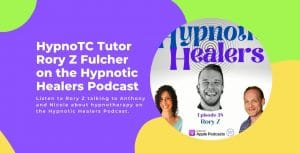Are you stressed? How do you know if you are (or if you are not)? Do other people know before you? Sometimes it can be useful to take a moment or two and just check how you are feeling. What better time, perhaps, than International Stress Awareness Day on 1st November. Now, some stress can be helpful; it can be motivating, it gets us out of bed in the morning, gives that presentation extra sparkle or energy. At some point, ‘positive’ or helpful stress, can tip over into ‘negative’ or unhelpful stress. One definition for this type of stress is ‘where the demands placed upon us, exceed our ability to cope’. This tipping point from helpful to unhelpful will occur at a different point for each of us. Some people thrive on ‘high pressure’ lifestyles, for others, it is exhausting and limiting. Our experience when we are ‘stressed’ will be different for each of us as well. It is likely to be a combination of mind and body effects, and some will be noticed earlier than others.
What is your ‘early warning’ that you are getting overloaded? Sadly, some of the psychological signs of stress can actually contribute to our overload, as they have an impact upon our ability to get things done. An inability to concentrate or make simple decisions, or being easily distracted from our focus and feeling less able to be intuitive or creative can make whatever our jobs or chores are, even more difficult, particularly where there is poor sleep quality too. There can also be unhelpful negative thinking and excessive worry, for some this can develop into anxiety, depression or both.
Alongside the psychological signs, are perhaps the more visible emotional indications of stress. When you are stressed, do you get angry, irritable, tearful or defensive (outward indications)? Or perhaps it is more internal, with a reduction in confidence, self-esteem, self-control or your ability to cope with criticism. As if the mental aspects of stress weren’t enough, you may also become aware of some physical symptoms. Muscle tension is one of the most common ones. You might not even notice how tense your shoulders have become…

A quick exercise:
Sit upright in a chair, or stand with your feet at hips’ width apart and balanced (not leaning against anything). Notice your shoulders. Take a deep breath in and, as you do so, bring your shoulders up to your ears. Then, rapidly drop your shoulders as you slowly breath out. Notice the difference in your shoulders now… (repeat, if you like)
As well as muscle tension and the potential aches and pains, or tiredness, your body may communicate that stress in other ways, as each body system deals with the pressure in its own way. Some people experience skin irritations, for others, it is digestive disturbances or high blood pressure. The immune system may also reflect the stress, so a heightened allergic response or more frequent colds or infections, or slow healing.
Whether mind or body precursors, at some point, inward experiences of stress can lead to external signs. Do you withdraw when stressed or anxious? Reduce your social or relaxation time? Do your relationships with loved ones and friends suffer? Your personality can become a different reflection of you; whether uncharacteristically nervous or anxious (where normally confident), or aggressive (where usually controlled), distracted (instead of focused), etc. You may even develop coping or self-soothing strategies, that whilst initially may seem helpful, can be damaging short or long-term, such as smoking, caffeine, alcohol or even recreational drugs.
Even if the primary cause of your stress isn’t work related, the psychological effects of stress can impact on your work, especially with regards to time management and decision making. Despite working longer and longer hours, you may be doing so less efficiently, or to a lower standard; simply not even noticing errors that would be blatantly obvious if you were not overloaded.
If you are stressed, it can be difficult to be objective, so a questionnaire can be a useful way of getting some clues as to what your present experience is. Using a stress questionnaire can be helpful, as it may ask questions about topics that you may not have yet considered (or are deliberately avoiding thinking about!). There are a vast number of stress questionnaires, such as the one by the International Stress Management Association:

http://isma.org.uk/pdf/free/Stress-Questionnaire.pdf
[CLICK TO OPEN / DOWNLOAD]
So, perhaps some of this has started to resonate with you, and you might be thinking; “ah, perhaps I am a little stressed”… that’s a step in the right direction, however ‘knowing’ is just awareness that there is (or could be) a problem, what really matters is ‘doing’. The first step is to look at your life and consider what each component of it brings to you. The life assessment scale (below) can help give you an indication of where you are at.
Life Assessment Scale
For each box, add in your score of how pressured you are in your day-to-day life. Insert a score from -10 (completely pressured) to +10 (completely comfortable / at ease) for each box (with 0 for neutral). The maximum score (either + / –) is 120… This can give you some useful insight on where you might like to start to focus your attentions.

With an awareness of your ‘primary areas’ for focus, the first step, for many, can be to acknowledge your needs. It is great that you are there for others, yet if you don’t take care of you first, then you won’t be able to help others. This is the ideal moment, to put yourself first!
When you are stressed, many people are tempted to cut corners in their own self-care; whether it is eating junk food to save time, or cutting down on exercise because they are too busy working or simply too tired. Yet, when you are stressed, your body needs even better care to be taken of it, so that it can support you through demanding times. Now is the time to look at your diet and lifestyle and notice what you can to better support the demands on your body. For some, this is eating healthily (and at appropriate times!), for others, it is ensuring that there is consistently sufficient time allocated for sleeping, or simply relaxation time. There are a vast number of resources available on the internet to teach time management skills. A Google search of ‘time management tips’ came back with over 28 million results!
Getting a balance in your life will enhance your resilience and enable you to cope better with natural demands placed upon you. When you allow yourself to start to mentally and physically unwind, you will be able to start to prioritise your commitments and the demands placed upon you. This is the time when you can start to use ‘no’ instead of automatically saying ‘yes’ to every demand, reviewing your commitments and sharing or delegating tasks, chores and activities where possible.
When we are stressed, one of the most common things we do is ignore or put off the (perceived) harder tasks and do the easy ones. However, by delaying the urgent or important tasks, they can become even more crucial and lead to additional pressure. If you ignore doing the laundry because it is too much effort, at some point there will be a family underwear crisis! Yet, some of the insignificant tasks that were completed because they were easy, can be postponed, or even eliminated… Here’s a great metaphor for time management:
Developing your own prioritising strategy will help you get ‘essential’ and ‘desirable’ tasks done in an appropriate time frame. Be realistic about what you can actually achieve in a day. If you use a ‘to do’ sheet, put your ‘must do’ two or three crucial tasks at the top and do those first. It can also be useful to batch similar tasks together, so you make best use of your time. It can be really helpful, at least initially, to give yourself a time-buffer, or allocate a bit more time than you think you will need. This can either be used up by possible complications, or give you a pleasant short break.
Another useful habit to develop is that of ‘complete focus’. It can be easy to let social media and emails intrude into your time when you are working on another task. Allocate time for social media and emails, certainly, but close those windows on your PC and turn your phone to silent if you can, for whole chunks of your day. You may be amazed at quite how much you will get done without constant distractions.
It can be helpful to give your mind some ‘time out’ from the tasks you need to focus on. Each of us will find different ‘mind balancing’ strategies work best. For some, exercise is the key, whether vigorous, such as cardio, or more relaxing, such as yoga, or even a soothing walk in nature. Music (playing or listening) is very effective as mind balancing, engaging both hemispheres, as can creating art (imaging how much fun you could have finger painting!). Pleasure can also be gained from reading or be creative, such as crafting. Others, find that interacting with pets can be soothing and balancing and a delightful way of restoring inner harmony. For others, it will be a power nap, meditation or self-hypnosis (see below).
So where does hypnosis and hypnotherapy come into this? If you are feeling stressed, or without even labelling it as stress, perhaps you have noticed some stress symptoms or clues that you are not yourself, seeing a hypnotherapist can be useful for an objective assessment. They can help you consider your life balance and explore, with you, different coping and management strategies. Often, they will be able to teach you self-hypnosis; which can be a wonderful resource and help you calm your mind and focus it more towards what you ‘do’ want, instead of focusing (if indeed it even can) on what the problems are. Solution-focused hypnotherapy can be really helpful in aiding the development of helpful thoughts and behaviours.

Simple self-hypnosis can focus on one or more cue words (see picture above) which have meaning for you and help your mind focus its energies on achieving this by using the pre-existing laws and rules of the mind. More advanced self-hypnosis can also use these laws and rules of the mind to help you rehearse how you want to respond more positively to previously stressful situations.
By addressing unhelpful stress, and creating a better balance in your life, you can achieve a more enjoyable and fulfilled life on a daily basis. We hope this blog has been helpful, and if you have any questions relating to this blog or the subject of stress management and how hypnotherapy can help, do please get in touch, because we’re always happy to help!
– written by Dr Kate Beaven-Marks
(HypnoTC Director)
















